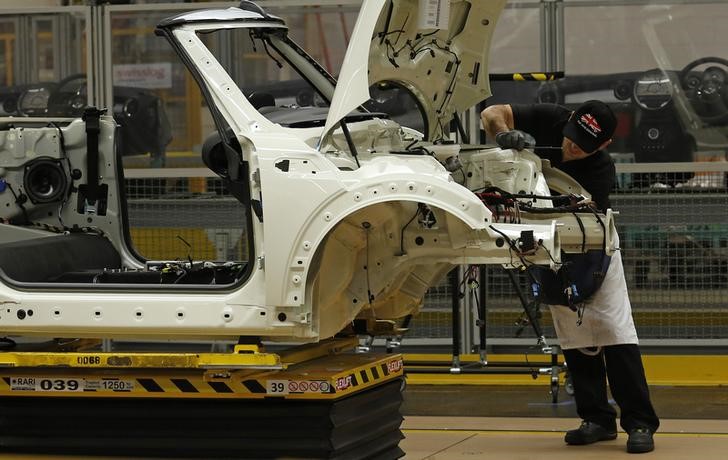LONDON,(Reuters) - British industrial output slowed further at the end of last year, hurt by maintenance work on North Sea oil and gas fields, adding to signs that Britain's economic recovery lost some pace as 2014 came to a close.
Industrial output fell by a monthly 0.2 percent in December, compared with economists' average forecast of a 0.1 percent rise, after no change in November, the Office for National Statistics said on Tuesday.
With Britons going to the polls in less than three months' time, the outlook for the economy is under close scrutiny by all political parties. Prime Minister David Cameron has said he wants Britain to be more export-oriented, but weakness in the euro zone has left it largely reliant on consumer demand.
For the fourth quarter as a whole, industrial output was up 0.1 percent, stronger than the 0.1 percent decline the ONS had pencilled into its preliminary estimate of fourth-quarter gross domestic product growth.
But the ONS said that the revision was not big enough to point towards an upward revision to GDP growth of 0.5 percent when a second estimate of fourth-quarter GDP is published on Feb. 26.
Britain's economy grew by 2.6 percent in 2014, the fastest growth rate of any big advanced economy, but lost pace towards the end of the year, including in the manufacturing sector which is exposed to weakening demand in the euro zone.
Since then, however, there have been signs that the fall in world oil prices has given a fresh boost to growth.
Earlier on Tuesday, an economic think tank said Britain's economy was on track for its strongest growth in nearly 10 years in 2015 as the oil price plunge put money in the pockets of the country's free-spending consumers.
Tuesday's data showed manufacturing output rose 0.1 percent after robust growth of 0.8 percent on the month in November. Economists taking part in a Reuters poll had expected output to fall by 0.1 percent.
Compared with a year earlier, factory output was 2.4 percent higher, slowing slightly from an upwardly revised 3.0 percent in November, which was the strongest in three months.
Weak industrial output -- which was up just 0.5 percent on the year -- largely reflected falling North Sea oil output, due to extended maintenance needed on oil fields which are coming towards the end of their productive life.
Oil and gas extraction fell by 9.3 percent on the year, the biggest fall since August 2013. Some of December's weakness was due to extra maintenance in the Huntington field, which had been scheduled to be completed in November.
The ONS said lower oil prices had not yet had a clear impact on output, but that Britain's energy ministry was forecasting there could be an effect in the first three months of 2015.
Some economists say lower oil prices should be a boost to manufacturers, most of whom will enjoy lower raw material costs and stronger consumer demand.
A private-sector survey of factory purchasing managers showed that activity grew at its slowest pace in three months in December, before picking up pace in January.
